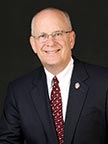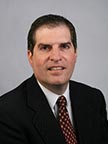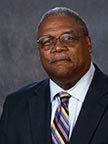Author Note
Clifton M. Smart, III, Office of the President, Missouri State University.
Correspondence regarding this article should be addressed to Clif Smart, President, Office of the President, Missouri State University, 901 S. National Avenue, Springfield, MO 65897. Phone: (417) 836-8500. E-mail: CliftonSmart@MissouriState.edu
It has always been a benefit to a community to have a large public university located within it. Thousands of students live there and spend money in the local economy. The university is a major employer; it hosts athletic contests, concerts, and various arts events; and it brings in engaging public speakers that community members enjoy.
Today, however, the role and importance of a large university within its community has expanded beyond these traditional benefits. This is in part due to the decreasing role of government in providing support for public schools, driving economic development, and performing other public functions. As a result, universities have partnered with local governments, school districts, other universities, philanthropic organizations, and the private sector to take on new responsibilities. In this essay, I describe three examples of how Missouri State University—an organization comprising more than 24,000 students and 3,500 employees located in Springfield, Missouri—has done just that with surprising results.
The IDEA Commons Initiative
For the last 15 years, Missouri State University has been committed to economic development. This commitment includes creating higher wage jobs, assisting in creating new companies, developing new technologies, and providing students with experiential learning opportunities.
Missouri State University’s economic development efforts are largely concentrated in IDEA Commons, an innovation district located in downtown Springfield which was established in collaboration with the City of Springfield, the Springfield Area Chamber of Commerce, City Utilities, and other local organizations. This district in anchored by the Roy Blunt Jordan Valley Innovation Center (JVIC), the Robert W. Plaster Free Enterprise Center, and Brick City. JVIC opened in 2007 after a 2-year renovation and repurposing of the former MFA feed mill, and includes two research centers that focus on high-tech research and new technology development by partnering with private business and federal agencies. The unique JVIC model allows corporate partners to collaborate with the university to create new high-wage jobs for the community, retain Missouri State University graduates, and provide tremendous experiential learning opportunities for students.
The success of JVIC has led to an expansion project, which involves demolishing the last portion of the former feed mill and constructing a new three-story facility. This project would not have occurred without the university’s community collaboration and strong relationships with the City, the Chamber of Commerce, City Utilities, and the State of Missouri. JVIC is also collaborating with the Missouri Cybersecurity Center of Excellence to develop a cybersecurity operations center to train students and professionals for nationally recognized certifications. The operations center will also provide cybersecurity services to small businesses and nonprofits to ensure that their systems are secure. This is more important than ever, as businesses utilize more online and virtual services, as well as remote work for employees.
The Robert W. Plaster Free Enterprise Center opened in 2013 in its initial phase. The former poultry processing facility is now home to the efactory business incubator, the Cooperative Engineering program, and Missouri State University’s printing and postal services. The efactory is a multifaceted business and entrepreneurship center, operating an incubator, co-working facility, and accelerator program, in addition to the Small Business Development Center and Management Development Institute. The efactory focuses on startups, small businesses and workforce development training, new business and job creation, capital formation, and engaging students for experiential learning opportunities. The Small Business Development Center also works closely with the College of Business and other academic departments to connect students to business projects.
The efactory collaborates with a significant number of organizations to support startups and small business. It has over 45 startup companies onsite, 19 corporate partners that provide professional service expertise and other services, and over 30 other organizations that are either located onsite or utilize the facility for user group meetings. The efactory is the hub of entrepreneurship for the Springfield region.
Economic development is about creating opportunities, and Missouri State University is committed to growing these efforts for the community, students, businesses, and other organizations. This would not happen without the relationships and partnerships of so many people and organizations. Most universities develop programs and facilities like JVIC and the efactory solely to benefit the university. Missouri State University has created programs that support and benefit the community, region, and state.
Public School Partnerships
Missouri State University has long partnered with area K–12 schools and nonprofits to lead the greater education community in the Springfield area. Most recently, the university partnered with the Darr Family Foundation and Springfield Public Schools (SPS) to build an agriculture magnet school for elementary and middle school students on the university’s agricultural campus. This effort builds on the success of SPS and the university’s existing partnership to house the business and entrepreneurship strand of SPS’s profession-based learning GOCAPS program at the efactory. Missouri State University also provides college credit for participants in five of SPS’s GOCAPS programs and hosts the annual Southwest District FFA contest, the annual Children’s Literature Festival of the Ozarks, middle school and high school writing workshops, and the Ozarks Writing Project’s annual summer institute for K–12 teachers.
As in the economic development arena, Missouri State University serves as a leader in education for the entire state, partnering with schools and organizations throughout Missouri. The university hosts state high school basketball and debate championships, and has developed an impressive array of camps, conferences and other pre-college experiences—such as the Missouri Fine Arts Academy, the Missouri Public Affairs Academy, and the World Languages Showcase—directed at enhancing educational opportunities for high-performing high school students throughout the state. The university also partners directly with K–12 school districts and teachers throughout the state. For example, through its Bear in Every Building program, Missouri State University works to ensure that all schools in Missouri have teachers committed to promoting college attainment.
In recent years, Missouri State University leveraged its reputation and partnerships to dramatically increase college access for students with limited financial resources. The university made the bold move to provide free dual-credit classes to high school students receiving free and reduced lunch. This cost the university substantial revenue at a time when finances were very tight. However, university leaders knew the free classes would have a massive impact on the degree and career attainment of high schoolers with limited means. Free dual-credit courses provided these students the same advantage their counterparts with greater wealth already have—proving that they are able to perform college-level work, earn college credits before they graduate high school, and shorten their time to graduation when they enroll in college full-time. The project started with a partnership with SPS and then expanded statewide.
Leadership Values the Inclusion of Diversity
Missouri State University is a predominantly White institution in a predominantly White community. As the underrepresented student population has grown, the university has dedicated itself to providing those students the same kind of experience as the majority students have. That meant leading our community and region to become more welcoming to those students, faculty, and staff from diverse backgrounds.
The first step was to establish a chief diversity officer position to lead those efforts. Now, most local large organizations have followed the university’s lead. The next step involved working to improve the campus and community climate through professional development and training. Missouri State University has trained its own administrative, academic, and student leadership, as well as many community leaders. One very successful program is the Facing Racism Institute, which more than 500 community, public sector, business, faith, and nonprofit leaders have completed in the last 5 years.
Campus and community climate is a critical area of focus. After Michael Brown’s death in Ferguson, Missouri, and subsequent demonstrations and uprisings, the university began holding “Tough Talks” for students to share their experiences and emotions related to those events. Recently, this program expanded into the community as people expressed interest in wanting to understand each other better after a series of racially charged national events occurred last summer. Missouri State University’s public affairs conference theme in 2020 was “The Power of Voice” (https://publicaffairs.missouristate.edu/conference), with many of the sessions focusing on race relations, civil interaction, and law enforcement reform.
The hiring and retention of a diverse workforce is critical to the success of serving a diverse student population. To achieve this, Missouri State University’s employees of color must be able to identify with and enjoy living in the community. Connecting employees of color with each other, assigning new employees of color to mentors, creating affinity groups, and hosting special activities have helped the university make progress in this area. While much remains to be done, the university’s commitment to inclusive excellence and valuing the inclusion of diversity has inspired other individuals, groups and organizations to undertake similar initiatives and make the community more culturally conscious and welcoming.
Twenty-five years ago, Missouri State University attained a statewide mission in public affairs. At the time, it was contemplated that students graduating from such a university would be citizen scholars. Later, the mission was expanded to reflect the university’s commitment to producing citizen scholars who would become engaged in their communities, were ethical leaders, and were culturally competent. The university community calls these our three pillars of public affairs.
Missouri State University must exemplify these same values. We believe we are up to the task. Through this work, the university community and the City of Springfield have become intertwined. The success of one is now the success of the other, and both are thriving at a level neither would have attained independently of the other. Moreover, many citizens of Springfield now identify with and support the university even if they attended college elsewhere or nowhere. Likewise, many Missouri State University employees and students have taken ownership of Springfield as they have seen the city change for the better as a result of the kind of partnerships described herein. Thus, the profile of the university has been raised, and university leadership has a seat at the table when major community decisions are made.
Authors
 Clifton M. “Clif” Smart III was named interim president on June 27, 2011, and served in that role until he was named the 11th president of Missouri State University on Oct. 16, 2012, after a nationwide search. He served as the University’s general counsel from December 2007 until being named interim president. In recent years, Smart has served as the president of the Council on Public Higher Education in Missouri, on the NCAA Division I Board of Directors, on the Mercy Health Springfield Communities Board of Directors, on the Board of Directors for the Hawthorn Foundation, and on the Board of Directors for Missouri Partnership. Prior to joining Missouri State University, Smart practiced law for 15 years with the Strong Law Firm. Smart and his wife, Gail, have two sons: Murray, who along with his wife, Amy, both graduated in 2012 from Southwest Baptist University and live in Rogers, Arkansas with their six children; and Jim, a recent graduate of Knox College in Illinois.
Clifton M. “Clif” Smart III was named interim president on June 27, 2011, and served in that role until he was named the 11th president of Missouri State University on Oct. 16, 2012, after a nationwide search. He served as the University’s general counsel from December 2007 until being named interim president. In recent years, Smart has served as the president of the Council on Public Higher Education in Missouri, on the NCAA Division I Board of Directors, on the Mercy Health Springfield Communities Board of Directors, on the Board of Directors for the Hawthorn Foundation, and on the Board of Directors for Missouri Partnership. Prior to joining Missouri State University, Smart practiced law for 15 years with the Strong Law Firm. Smart and his wife, Gail, have two sons: Murray, who along with his wife, Amy, both graduated in 2012 from Southwest Baptist University and live in Rogers, Arkansas with their six children; and Jim, a recent graduate of Knox College in Illinois.
 Ryan DeBoef has been Chief of Staff and Assistant to the President for Governmental Relations at Missouri State University since July 2014. He is responsible for facilitating the university’s achievement of its state and federal legislative agendas and coordinating the governmental relations activities of the university. Prior to becoming Chief of Staff, he served as legal counsel for Missouri State University from almost 4 years. Before coming to Missouri State, he was an associate at Husch Blackwell, LLP and a law clerk for U.S. District Judge Richard E. Dorr. DeBoef received his law degree from the University of Missouri – Columbia in 2005, where he graduated at the top of his class. He received his Bachelor of Science degree summa cum laude in 2001 from Evangel University with majors in government and public administration.
Ryan DeBoef has been Chief of Staff and Assistant to the President for Governmental Relations at Missouri State University since July 2014. He is responsible for facilitating the university’s achievement of its state and federal legislative agendas and coordinating the governmental relations activities of the university. Prior to becoming Chief of Staff, he served as legal counsel for Missouri State University from almost 4 years. Before coming to Missouri State, he was an associate at Husch Blackwell, LLP and a law clerk for U.S. District Judge Richard E. Dorr. DeBoef received his law degree from the University of Missouri – Columbia in 2005, where he graduated at the top of his class. He received his Bachelor of Science degree summa cum laude in 2001 from Evangel University with majors in government and public administration.
 Allen Kunkel is Associate Vice President for Economic Development and Director of the Jordan Valley Innovation Center at Missouri State University. He is responsible for helping guide the Innovation Center in its mission of supporting businesses, coordinating the resources of the federal, state, and local governments with the resources of Missouri State University, and engaging the University in economic development activities, including the development of IDEA Commons and operation of the University’s entrepreneurship center, the efactory. Allen has a Bachelor of Science degree in Community and Regional Planning from Iowa State University and a Master of Public Administration from the University of Missouri. Allen is a 2003 graduate of Leadership Missouri, recognized by the Springfield Business Journal as one of the 2014 Men of the Year, and recognized by BIZ417 Magazine in the BIZ100.
Allen Kunkel is Associate Vice President for Economic Development and Director of the Jordan Valley Innovation Center at Missouri State University. He is responsible for helping guide the Innovation Center in its mission of supporting businesses, coordinating the resources of the federal, state, and local governments with the resources of Missouri State University, and engaging the University in economic development activities, including the development of IDEA Commons and operation of the University’s entrepreneurship center, the efactory. Allen has a Bachelor of Science degree in Community and Regional Planning from Iowa State University and a Master of Public Administration from the University of Missouri. Allen is a 2003 graduate of Leadership Missouri, recognized by the Springfield Business Journal as one of the 2014 Men of the Year, and recognized by BIZ417 Magazine in the BIZ100.
 Wes Pratt, J.D., is a lifelong public servant who started making a difference as a student community activist. He served as a San Diego City Council member; a state director of the California Conservation Corps; an attorney in private practice, and as deputy director of the Maryland Job Corps. Since returning to his hometown in 2007, Pratt has worked at Missouri State University (MSU) in various roles including Coordinator for Diversity Outreach and Recruitment, Director of Institutional Equity and Compliance/Equal Opportunity Officer, Title IX Coordinator, and now Assistant to the President/Chief Diversity Officer (CDO). Pratt serves the general community as a co-founder and President of the Minorities in Business (MIB); is a member of the NAACP-Springfield Chapter; Co-founder of the Gathering; a Bridge Springfield:”Brother2Brother” advisor; co-owner of Pratt Consultants, and many others. He is married to Francine M. Pratt and is a father, grandfather, and mentor who believes in and lives the motto that “Public Service is the Noblest Good!”
Wes Pratt, J.D., is a lifelong public servant who started making a difference as a student community activist. He served as a San Diego City Council member; a state director of the California Conservation Corps; an attorney in private practice, and as deputy director of the Maryland Job Corps. Since returning to his hometown in 2007, Pratt has worked at Missouri State University (MSU) in various roles including Coordinator for Diversity Outreach and Recruitment, Director of Institutional Equity and Compliance/Equal Opportunity Officer, Title IX Coordinator, and now Assistant to the President/Chief Diversity Officer (CDO). Pratt serves the general community as a co-founder and President of the Minorities in Business (MIB); is a member of the NAACP-Springfield Chapter; Co-founder of the Gathering; a Bridge Springfield:”Brother2Brother” advisor; co-owner of Pratt Consultants, and many others. He is married to Francine M. Pratt and is a father, grandfather, and mentor who believes in and lives the motto that “Public Service is the Noblest Good!”

